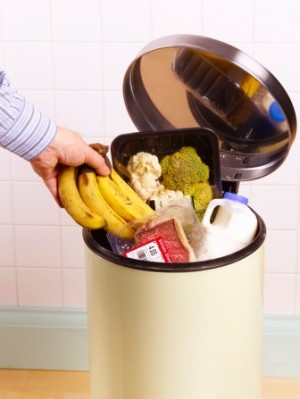A Brief View of Food Waste
 A study from the Food and Agriculture Organization of the United Nations (FAO) shows approximately one-third of all edible food produced for human consumption is lost or wasted globally, which equates to approximately 1.3 billion tonnes per year. Such excessive food production leads to a huge waste of resources in land, water, energy and other inputs. It also results in unnecessary environmental damages such as higher greenhouse gas emissions.
A study from the Food and Agriculture Organization of the United Nations (FAO) shows approximately one-third of all edible food produced for human consumption is lost or wasted globally, which equates to approximately 1.3 billion tonnes per year. Such excessive food production leads to a huge waste of resources in land, water, energy and other inputs. It also results in unnecessary environmental damages such as higher greenhouse gas emissions.
Food losses refers to the decrease in edible food mass throughout the part of the supply chain that specifically leads to edible food for human consumption. In a food supply chain, the losses occurring at the production, postharvest and processing stages are generally referred to as food losses; while the losses happening at the end of the chain (retail and final consumption) are referred to as food waste, which relates to the behaviour of the retailer and consumer. The consumer has been identified as a much bigger contributor to food waste than the retailer. However, current efforts to tackle consumer food waste are primarily about raising public awareness and changing people’s attitude towards wasting food. So far, these efforts haven’t been proven to be adequate; more effective methods are therefore needed.
Researchers have found that one important cause of consumer food waste in the household is the consumer’s difficulty in emptying food packages, while the most important cause is the large packaged food and multi-buy bargains that retailers offer. Likewise, food manufacturers produce oversized ready-to-eat meals that make food in the household either "cooked, prepared or served too much" or "not used in time". This implies that by producing packaged food in appropriate sizes, and promoting food in a responsible way, we can substantially reduce consumer food waste. Yet, there are not many further researches on how to adjust the retailers’ promotions or manufactures’ package sizes from a waste reduction perspective. Consumer food waste remains largely uncontrolled, in a systematic sense.
To fill the knowledge gap in this area, we start a research initiative focusing on optimizing the retailers’ promotions to reduce the consumer food waste. We work with retailers and food manufacturers on the implementation of our research output to cut down food waste to a minimum from supply chain's perspective.

-
Utility Company Business Growth Model and Decision Support System
Finding power to supply its customers is the first thing a newly established utility company needs to do. Electricity can be purchased either from the network or from an energy producer directly. The... -
A Brief View of Business Intelligence
The Data Warehouse Institute defines Business Intelligence as the processes, technologies and tools needed to turn data into information and information into knowledge and knowledge into plans that dri... -
Whole Life Costing Model in Asset Management
In asset management, the whole life costing model is normally initiated to meet the following two broad strategic objectives: to ensure sufficient funding is available to maintain the asset portfolio... -
Apply Artificial Intelligence in Retail Promotion to Reduce Food Waste
Artificial intelligence (AI) is an academic field that studies how to create computers and computer software which are capable of intelligent behavior. The major concerns of AI research include reason... -
A Conceptual Framework for Reducing Consumer Food Waste
Our framework is based on the concept of a closed-loop control system from control engineering. It employs the Internet of Things (IoT) sensor network to realize a closed-loop consumer food consumptio... -
Diffuse Traceability Across Food Industry
The implementation of traceability in food industry has been required as mandatory in some countries. In Europe for instance, the General Food Law entered into force in 2002 which makes traceability c... -
A Centralized Traceability System for SMEs
Our centralized traceability system (CTS) consists of three function modules: traceability server, database server and web portal. It creates very few overheads for supply chain partners as the server...








